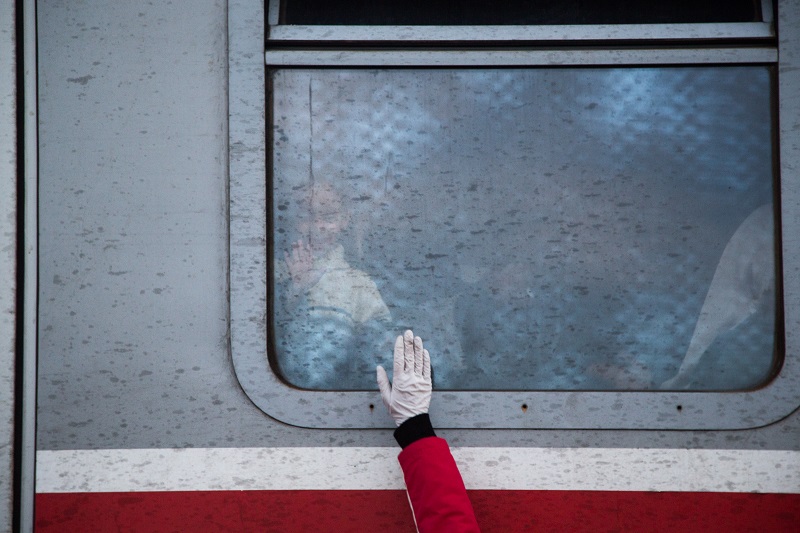Putting trafficked persons at the centre of the EU anti-trafficking response
This week, the European Parliament’s Civil Liberties, Justice and Home Affairs Committee will vote on the revision of the EU Anti-Trafficking Directive. While the up-coming Parliament report strengthens some aspects of survivor protection, the proposed revision of the Directive falls short in placing the protection needs of people who have been trafficked at its core.
A severe violation impacting the most vulnerable people
Trafficking in persons[1] is a severe human rights violation that impacts both adults and children. It consists of one person taking unfair advantage of another person for personal gain, resulting in severe harm. Threat, use of force, abduction, but also fraud, deception, or abuse of power are generally used by the perpetrator to control the victim. Such exploitation can take many forms, such as forced labour, servitude and sexual exploitation. Human trafficking can occur inside one country or transnationally, and it affects both nationals and migrants. Yet, migrants are particularly vulnerable to traffickers, especially when they do not have a regular status as they have to resort to undeclared employment, where the risk of exploitation is substantial. In addition, the fear of ending up in immigration detention or in return procedures prevents many undocumented victims of trafficking from reporting exploitation to the authorities.
The EU Anti-Trafficking Directive provides common rules to EU Member States for supporting and protecting survivors of trafficking in human beings. It also establishes basic provisions for trafficking prevention, as well as standards for the investigation and prosecution of human trafficking. Despite an elaborate legislative framework at international, European and national levels, European Commission reports indicate that human trafficking in the EU is not declining, but evolving and adapting to circumstances. For instance, the COVID-19 pandemic has accelerated the digitalisation of trafficking network modalities to recruit victims and sell services.
A missed opportunity to strenghten the rights of trafficked persons
In 2022, the Commission conducted a review and consultation on the Directive to assess whether it is still fit for purpose. This led to a Commission proposal to amend the Directive, which was promptly endorsed by the Council with minor changes. The proposal includes clear indicators for Member States to improve annual data-collection on trafficking in human beings, which should help monitor its magnitude. In addition, it calls for the establishment of national referral mechanisms in all Member States to streamline the early identification and support of trafficking survivors.
However, the proposed amendments are limited and overemphasise law enforcemen response to human trafficking. Furthermore, the opportunity has been missed to strengthen the rules on victim protection – an area that has proven to require additional interventions the most. Unfortunately, the text does not strengthen humanitarian assistance to trafficked persons, the protection of their rights, nor the support they need to reintegrate into society. Indeed, provisions should have been bolstered to ensure that survivors are not punished for actions carried out when trafficked, and that they can access adequate compensation and assistance. Access to a residence permit for all victims of trafficking, regardless their willingness to cooperate with justice, is also crucial.

Upholding a ‘do no harm’ approach in measures aimed at preventing trafficking
The proposal aims at curbing trafficking by “reducing the demand for trafficked services”, calling for the criminalisation of people who purchase the services of trafficked persons. While this concerns users who are aware that they are buying a service from a victim of trafficking, there is pressure to expand the provision to criminalise people regardless of awareness, mainly focusing on prosecuting the clients of sex workers. Such an approach could lead to policies and practices that push sex work further underground and potentially increase risks and harm for trafficked persons by making them more difficult to reach.[2] When discussing these aspects of the revision, legislators must ensure that a ‘do no harm’ approach is adopted. Effective prevention policy also requires actions such as information campaigns, concrete measures to counter the exclusion of undocumented migrants, access to regularisation in the country and increasing pathways for regular migration.
The European Parliament report contributes to a more survivor-centred approach by strengthening some aspects of survivor protection in the Directive. Nevertheless, EU migration policies beyond the Directive must offer dignified opportunities to third-country national workers of all skill levels to reduce the high risk of trafficking faced by many migrants. In addition, anti-trafficking policies need to be embedded in the current reform of the Common European Asylum System. Special reception and procedural guarantees must be ensured for asylum applicants who are identified as victims of trafficking, while trafficking survivors in Dublin procedures should not be transferred to a first country of entry where they were exploited and where they risk being re-trafficked.
Securing a survivor-centred approach when implementing the directive
Once the Parliament approves its position, inter-institutional negotiations with the Council will begin. Going forward, it will be important that a robust approach centred on the protection and inclusion of trafficking survivors is embedded across EU migration policies. Crucially, the reform of this Directive ought to give impetus to a more survivor-centred implementation of its provisions, including the views of people with lived experience of being trafficked.
[1] For a more detailed definition, the UN International Protocol to Prevent, Suppress and Punish Trafficking in Persons, Especially women and children.
[2] The impact assessment report of the proposal explains the concerns of a number of civil society organisations that criminalising the use of services exacted from victims of trafficking might be harmful for victims.
To learn more about National Red Cross Societies’ programmes addressing trafficking in human beings, check out the activity features of the EU-funded transnational projects FAST (2020 - 2023), Pathways (2018 - 2020), STEP (2017 – 2019), Protect (2015 – 2016).
For media inquiries, please contact Eva Oyón on: eva.oyon@redcross.eu or +32 2 235 09 22

